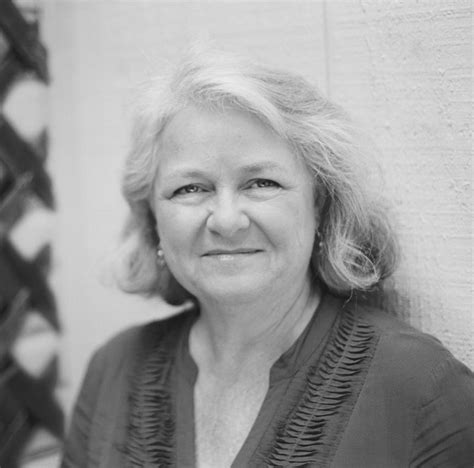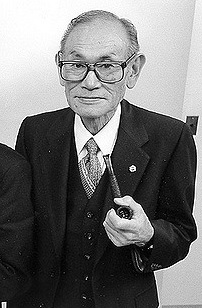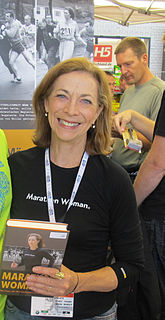A Quote by Demi-Leigh Nel-Peters
I've heard many women say that they were afraid to come out or they were too ashamed to talk about it because they thought it was something they had done to promote the man to sexually harass them - and that is not the case.
Related Quotes
Where did all the women come from? The supply was endless. Each one of them was individual, different. Their pussies were different, their kisses were different, their breasts were different, but no man could drink them all, there were too many of them, crossing their legs, driving men mad. What a feast!
You could look out the window today, see the sky raining fire, and say that it has all been for nothing, everything we've ever done, because now we've lost. But folk were born and lived and knew friendship and music in this city, ugly as it is, and all across this land that we fought for. Some grew old, and others were less lucky. Many bore children and raised them, and had the pleasure of making them, too, and we gave them that for as long as we could. Who has ever done more, my friend?
Before the war, my parents were very proud people. They'd always talk about Japan and also about the samurai and things like that. Right after Pearl Harbor, they were just real quiet. They kept to themselves; they were afraid to talk about what could happen. I assume they knew that nothing good would come out of it.
When I was a congressman, I had occasion to talk to this group of students who were taking their seat. There were about 80 of them and I asked them, 'How many of you will be serving in the country once you graduate?' And, out of the 80, there were two that raised their hands. The rest were thinking of leaving.
I'd like to say is that we shouldn't have an idea that the goal of spiritual practice is to annihilate ones ego, that would be a mistake. In the early years of enlightenment, psychologists were afraid of Hindus and Buddhists meditating because they thought they were going to shatter their egos and then they'd have to wear diapers or something, like they'd lose their toilet training or what have you. They were really afraid of it.
The women all had big minds because they were big animals, but they didn't use them for this reason: unusual ideas could make enemies and the women, if they were going to achieve any sort of comfort and safety, needed all the friends they could get. So, in the interest of survival they trained themselves to be agreeing machines. All their minds had to do was to discover what other people were thinking and then they thought it too.
I thought, This is fabulous. It sent shivers up my spine. I thought, What kinds of people are these that would produce this kind of music in a camp? All the prison camp stories I've seen, and heard of, were about the heroism of men. As I researched this and heard the music, I realized that women were heroic too, on just as grand a scale. And their treatment was just as appalling.
There are so many issues that impact women. When we talk about prison reform, for example, women were [once] sterilized in women's prisons. When they were giving birth, they were asked to sign paperwork but they weren't even completely conscious of what they were signing. That sounds like something that would never happen in America, but it was happening, not just in America, but in [California], one of the most progressive states in the United States.
Those women who had gone out with Germans were grabbed and treated very badly, often shaved totally bald so that everyone could see who they were. Some were taken prisoners. There had been so much suffering during the war because of the betrayal of those collaborators, so many killed and hurt because of what they had done to families, that the mood for revenge against the traitors was very high. It was not right, but it was understandable.
When I was first running marathons, we were sailing on a flat earth. We were afraid we'd get big legs, grow mustaches, not get boyfriends, not be able to have babies. Women thought that something would happen to them, that they'd break down or turn into men, something shadowy, when they were only limited by their own society's sense of limitations.
He kissed me hard and I kissed him back harder, like it was the end of an era that had lasted all of my life.
Being near Tom and Doug at night kept me from having to say to myself I am not afraid whenever I heard a branch snap in the dark or the wind shook so fiercely it seemed something bad was about to happen. But I wasn't out here to keep myself from having to say I am not afraid. I'd come, I'd realized, to stare that fear down, to stare everything down, really - all that I'd done to myself and all that had been done to me. I couldn't do that while tagging along with someone else.
There were others, women with stories that were told in a quieter voice: women who hid Jewish children in their homes, putting themselves directly in harm's way to save others. Too many of them paid a terrible, unimaginable price for their heroism. And like so many women in wartime, they were largely forgotten after the war's end.There were no parades for them, very few medals, and almost no mention in the history books.
I'm not resigned, but I'm realistic too. The statistics in my case are very poor. Not many people come through esophageal cancer and live to talk about it, or not for long. And the other wager is, the part of the wager, it's a certainty you'll have a terrible time and you may wish you were dying because it's an awful process.










































